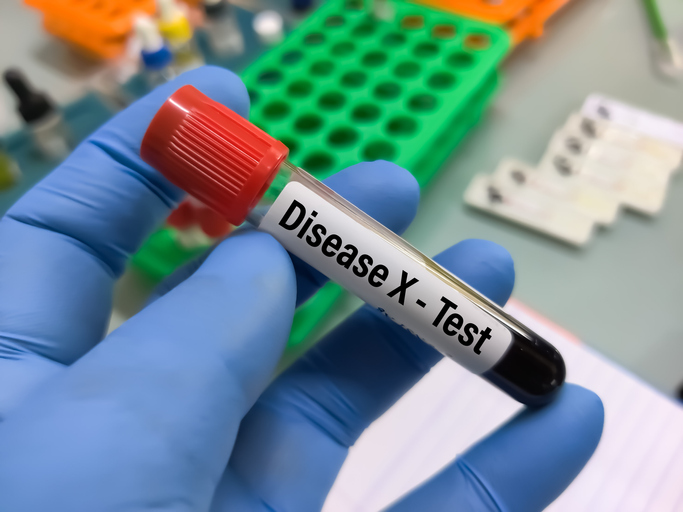World Health Organization (WHO) Director-General Tedros Ghebreyesus is pressuring countries around the globe to agree to a new pandemic treaty, warning the next pandemic threat could be deadlier than COVID-19.
Ghebreyesus rang the alarm at a meeting of the World Economic Forum (WEF) in Davos, Switzerland, in January, during a panel discussion on “Preparing for Disease X,” an as-yet unspecified illness.
“There are things that are unknown and that may happen, and anything happening is a when, not if, so we need to have a placeholder for that, for the diseases we don’t know,” said Ghebreyesus.
‘All-of-Society Approach’
The “placeholder” Ghebreyesus referred to is a WHO-sponsored, legally binding pandemic treaty, which delegates from the U.N. health agency’s 194 member countries have been negotiating since March 2021.
“The pandemic agreement can bring all the experience, all the challenges we have faced and all the solutions into one,” said Ghebreyesus. “That agreement could help us prepare for the future in a better way.”
The idea of a global pandemic treaty was first launched by the European Union in 2021, when two dozen heads of state outlined their vision of an all-encompassing document.
“The main goal of this treaty would be to foster an all-of-government and all-of-society approach, strengthening national, regional, and global capacities and resilience to future pandemics,” the statement said.
‘A Common Global Interest’
Ghebreyesus, the only panelist who mentioned the pandemic treaty, said COVID-19, in a way, was the first Disease X. Such diseases are a “common enemy requiring a united response,” said Ghebreyesus, and “this is a common global interest,” and “very narrow national interests should not come in the way.”
Panel member Preetha Reddy, a vice chair of Apollo Hospitals, one of India’s largest health care providers, cited the role “lockdowns and early vaccinations” played as her country dealt with the pandemic. Panelist Nisia Lima, a social scientist who has served as Brazil’s minister of health since 2023, pointed to the necessity of “surveillance” to monitor the spread of a pandemic and called for greater “equity” between developed and developing countries in confronting future pandemics.
Journalist Larry Taunton, in an interview on the Dinesh D’Souza Podcast, on January 18, noted that, in WEF discussions of pandemic-related matters, “vaccines were always mentioned in a positive way. That they could do harm to certain people never came up.”
‘Prioritize Early Treatment’
Peter McCullough, M.D., a Texas-based physician board-certified in internal medicine, cardiovascular diseases, and clinical lipidology, was an early critic of the public health response to COVID-19. In a January 17 blog post, he recommended different policies.
“In the future, we should always prioritize early treatment and carefully record the acquisition of natural immunity,” wrote McCullough. “Massive efforts to ‘escape’ the index occurrence of a highly infectious respiratory virus are futile. We should all have expected to contract SARS-CoV-2, managed it, and moved on in life. The massive waste of government interventions driven by the Bio-Pharmaceutical Complex will go down as the largest sinkhole for money and public health efforts in history.”
‘Lab Leak Will Happen Again’
Notably absent from the discussion in Davos over how to confront a future pandemic was any mention of the role a future lab leak might play in unleashing a deadly disease.
In an address at Hillsdale College’s Kirby Center in Washington, D.C. on November 1, Sen. Rand Paul (R-KY), a physician, noted the extraordinary efforts U.S. health officials, led by Anthony Fauci, undertook to discredit the possibility COVID-19 might have resulted from a lab leak at China’s Wuhan Institute of Virology.
“A growing number of virologists and other scientists worry that a lab leak will happen again, and with even more serious consequences,” said Paul. “With COVID, the mortality rate was far less than one percent. Experiments are now being carried out with viruses that have the potential for mortality rates between 15 and 50 percent.”
‘Worse Disaster than the Disease’
Jane Orient, M.D., executive director of the American Association of Physicians and Surgeons, says the public-health establishment’s response to COVID-19 is a good reason to shun a grandiose global approach to confronting future pandemics.
“One thing we should have learned from COVID-19 is that the governmental response was a worse disaster than the disease,” Orient said. “Those jurisdictions that adopted early treatment with repurposed drugs or had public health policy that led to natural immunity rather than a crippled economy, fared far better.
“Nations should have learned from each other rather than imposing a centralized policy devised by ‘experts’ corrupted by financial conflicts of interest and political agendas. In particular, we should have learned from the perils of mass injections of a minimally-tested genetically-engineered product, with serious adverse effects and long-term impacts that cannot be known for years.”
Donors’ ‘Undue Influence’
Marilyn M. Singleton, M.D., J.D., a senior fellow with Do No Harm, says the real danger is an enhanced bureaucratic approach to public health.
“In what universe does adding more top-down bureaucracy efficiency, transparency, and accountability work?” asked Singleton.
“WHO continues to tout itself as a public health leader but kowtowed to China by failing to challenge it on the origins of the new coronavirus, now known as SARS-CoV-2,” said Singleton. “Moreover, WHO relies on donations to fulfill its mission. This leaves the organization vulnerable to private entities—like its largest donor, the Bill and Melinda Gates Foundation—having an undue influence on policies,” said Singleton.
Bonner Russell Cohen, Ph.D. (bcohen@nationalcenter.org) is a senior fellow at the National Center for Public Policy Research.




















